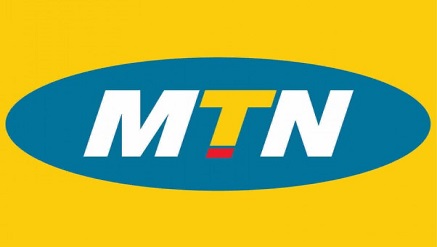Telecom
MTN Unveils Internet of Things Platform

MTN Business has unveiled its Internet of things (IOT) platform, which it says will provide African enterprises with greater control and advanced management features for their connected devices and SIM cards.
The platform launch by Mteto Nyati, MTN Group CEO also saw the introduction of a global machine-to-machine (M2M) SIM card, which will give MTN customers the same rate for M2M activity across the operator’s footprint in Africa.
“To ensure a seamless customer experience for our customers, whenever MTN has presence, the IOT platform has a dedicated network, separate from the consumer network, for operational and business systems support.
“As a result, the platform is dedicated to managing all of MTN’s machine-to-machine functions,” Nyati explained.
The IOT platform is now live in SA, and it will be launched in other countries in which MTN operates within the next 12 months.
“Through this platform, we are going to provide South Africans – and indeed Africans – with an opportunity to write and build solutions that address the challenges of our continent. In the process of doing that, these South Africans will be able to benefit, because they will be generating revenue through their partnership with MTN.”
Nyati noted the platform removes significant costs and accessibility barriers, enabling development on a broader scale, leading to the establishment of a vast ecosystem of scalable solutions that address real-world needs.
The IOT platform is the next evolutionary step in connecting and managing machines, Nyati pointed out, adding its dedicated network enables the company to connect an otherwise fragmented population of devices and systems.
“No longer does this service have to compete with voice and data, leading to a degradation of the network.”
The open platform enables networked devices to exchange information and perform actions, responding intelligently to their environments, without human intervention, he added, noting the global number of IOT connections is expected to reach 360 million by 2018.
“In South Africa, the wholesale M2M market – one aspect of IOT – is already worth an estimated R350 million and expected to grow to R1.2 billion by 2017. This means there are significant business opportunities for aspiring developers in South Africa and the rest of the continent,” said Nyati.
As part of the IOT platform launch, MTN says application developers from across SA are participating in the inaugural MTN Business Mind-2-Machine Challenge.
The initiative aims to identify developers to create scalable and relevant business solutions that solve real-world problems. Winners of the challenge will be able to monetise their solutions with MTN Business and take them to market.
Telecom
Suspected Lakurawa Terrorists Kill 3 Telcoms Workers in Kebbi

Terrorists belonging to Lakurawa group have reportedly killed three staff of a leading telecommunication firm.

The insurgents were said to have invaded a construction site at Gumki village in Arewa Local Government Area of Kebbi State.
The bandits reportedly attacked a construction site at Gumki village in Arewa Local Government Area of Kebbi State when their victims were installing a surveillance mast for the Nigeria Immigration Service and killed them and one other person who is yet to be identified.
There was a conflicting report of which organization the victims belonged as the police said three of the deceased were Airtel staff and the residents identified them to be Immigration staff.
A staff of Sir Yahaya Specialist Hospital however corroborated the villagers, saying the three victims brought to the hospital were Immigration staff.
But SP Nafiu Abubakar, police spokesperson, said four persons lost their lives, one indigene and three staff of Airtel.
He said from the report the police got, Bello M Sani, state Commissioner of Police, alongside with CIS Muhammad Bashir, Comptroller, Nigeria Immigration Service, Kebbi State Command, Lawali mobilized their men to the scene to evacuate the corpses to Sir Yahaya Memorial Hospital in Birnin Kebbi.
He said his CP has deployed additional tactical teams to the area and charged them to decisively deal with the suspected bandits operating in the area.
He said the CP also had meeting with people in the area and appealed to them to always assist the police and other security agencies with relevant information for their prompt response.
Telecom
Nigeria Has World’s Most Affordable Data Costs – GSMA

Nigeria has an average data cost of $0.38 per gigabyte, making her the most affordable countries globally and one of the cheapest in Africa for mobile data services.

United States averages $6 per gigabyte and South Africa with $1.77 per gigabyte rank the highest globally and in Africa respectively.
According to the GSMA, Nigerian data costs, as a percentage of Gross National Income (GNI) per capita, are among the lowest across Africa.
The reports by the body lends weight to telecom operators advocacy for tariff adjustments to address economic pressures threatening the sector’s sustainability.
The GSMA report, titled “The Role of Mobile Technology in Driving the Digital Economy in Nigeria,” highlighted Nigeria’s competitive data pricing, which is significantly lower than other African nations, such as Kenya ($0.59 per gigabyte), Ethiopia ($0.68 per gigabyte), and South Africa ($1.77 per gigabyte).
By contrast, the United States averages $6 per gigabyte, underscoring Nigeria’s advantage in offering cost-effective connectivity.
The cost of mobile data in Africa varies greatly by country and region.
Data costs can refer to the cost of mobile data or the cost of acquiring, maintaining, and using business data.
In 2023, the average cost of 1 GB of mobile data in Sub-Saharan Africa was $3.31, while in Northern Africa it was $0.86.
Telecommunications operators in Nigeria have been requesting some policy changes as well as tariff rebalancing to enable them deliver support to the Government’s digital economy objectives.
They have called for the simplification and improvement of the Right of Way (RoW) charging and administration process, harmonised across the country
According to them, all government authorities (at national and sub-national levels) should apply the national maximum RoW fee of N145 per/LSQM adopted by the National Economic Council (NEC) for the deployment of fibre across all states in Nigeria.
There should be a single point of contact in each state for the RoW application process while the duration for the approval process should be digitalised and limited to a maximum of one month.
Simplification and reduction of the tax burden on the mobile sector
On tariff, recall that the Association of Licensed Telecommunications Operators of Nigeria (ALTON) and the Association of Telecommunications Companies of Nigeria (ATCON) had urged the Nigerian Communications Commission (NCC) to consider reviewing tariffs upward to address rising operational costs.
Nodding in agreement, Bismarck Rewane, chief executive officer, Financial Derivatives, said the proposed tariff hike by telecommunications will help reduce inflation in the country.
He said it would help to reduce inflation because it increases productivity, stressing that the price of MTN shares went up by 10% to 220.
Rewane reiterated that investors had already factored that in, adding that they are expecting a lot of good goodies.
“But more important to think about is the fact that because of an increase in tariff and an increase in investment to make the industry sustainable, they’re going to see an increase in productivity, not directly but indirectly.
“Any increase in productivity and output is likely to allow inflation to moderate, which is the goal. So, we heard from the policymaker, Bosun Tijani, who was very clear that we want a sustainable sector. But we also heard from the regulator saying that we will hold these guys to quality of service.
“We also heard from the operators, MTN that they are all revving up. So in all, there are economic benefits because of increased output and productivity. Two, policymakers are aligned because they want this to lead to a moderation in inflation,” he added.
He further said that it was not a bad deal and re-echoed the minister’s comment that the tariff hike will not be 100 per cent.
“Will they get 100%? No, they will definitely not. We suspect that we are going to likely see something between 40 and 50% which is fair after so many years of static changes,” Rewane added.
Telecom
Bismarck, Economist Claims Planned Tariff Hike by Telcos Will Reduce Inflation

Bismarck Rewane, chief executive officer, Financial Derivatives, has said the proposed tariff hike by telecommunications will help reduce inflation in the country.

Rewane made this statement on Channels Television’s Business Morning on Thursday.
Recall that Association of Licensed Telecommunications Operators of Nigeria (ALTON) and the Association of Telecommunications Companies of Nigeria (ATCON) had urged the Nigerian Communications Commission (NCC) to consider reviewing tariffs upward to address rising operational costs.
On January 3, Karl Toriola, chief executive officer (CEO), MTN Nigeria, said telcos want a 100 percent tariff hike.
According to Rewane, who previously supported the plans for a tariff hike, the move will make the sector more sustainable.
He said it would help to reduce inflation because it increases productivity, stressing that the price of MTN shares went up by 10% to 220.
Rewane reiterated that investors had already factored that in, adding that they are expecting a lot of good goodies.
“But more important to think about is the fact that because of an increase in tariff and an increase in investment to make the industry sustainable, they’re going to see an increase in productivity, not directly but indirectly.
“Any increase in productivity and output is likely to allow inflation to moderate, which is the goal. So, we heard from the policymaker Bosun Tijani, who was very clear that we want a sustainable sector. But we also heard from the regulator saying that we will hold these guys to quality of service.
“We also heard from the operators, MTN that they are all revving up. So in all, there are economic benefits because of increased output and productivity. Two, policymakers are aligned because they want this to lead to a moderation in inflation,” he added.
He further said that it was not a bad deal and re-echoed the minister’s comment that the tariff hike will not be 100 per cent.
“Will they get 100%? No, they will definitely not. We suspect that we are going to likely see something between 40 and 50% which is fair after so many years of static changes,” Rewane added.

 General News3 days ago
General News3 days agoNigeria Recovers $52.88m in Assets Linked to Former Petroleum Minister Diezani Alison-Madueke

 E-Business3 days ago
E-Business3 days agoCybersecurity Firm Warns of Phishing Threats Targeting Telegram Premium

 General News3 days ago
General News3 days agoTransform Your Health with QNET’s BELITE 123: The Ultimate Weight Management Solution

 General News3 days ago
General News3 days agoTikTok Announces Plans to Cease Operations in the U.S. by January 19, 2025

 E-Financial22 hours ago
E-Financial22 hours agoBudgIT Queries Irregularities in FG’s Proposed 2025 Budget

 Telecom22 hours ago
Telecom22 hours agoSuspected Lakurawa Terrorists Kill 3 Telcoms Workers in Kebbi

 General News22 hours ago
General News22 hours agoLagos State Sets Strict Deadline for 2024 Tax Returns Filing

 E-Financial22 hours ago
E-Financial22 hours agoNAICOM Seeks Police’s Support to Enforce Third-party Motor Insurance






















